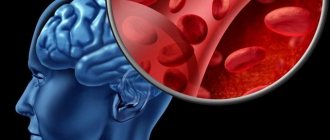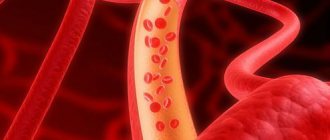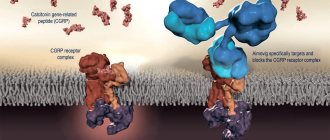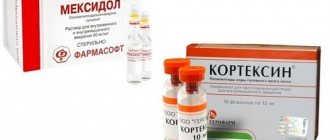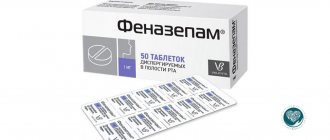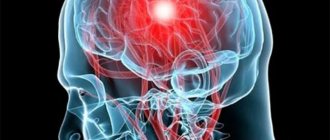Depression is one of the most common diseases. In terms of prevalence, it is second only to cardiovascular diseases. And of all those suffering from depression, no more than 20% seek qualified help.
In this article we will tell you about all the drugs used to treat depression.
All medications with antidepressant effects can be divided into several groups:
- Antidepressants.
- Normotimic drugs.
- Neuroleptics.
- Tranquilizers.
- Nootropics and metabolic agents.
- Herbal remedies.
- Amino acids.
- Psychostimulants.
Normotimic drugs
Medicines in this group have an antidepressant effect only in cases where the depressive state is caused by chronic affective diseases, such as bipolar affective disorder (BD, manic-depressive psychosis), cyclothymia, dysthymia, schizoaffective disorder. Most commonly used medications:
- Carbamazepine (finlepsin)
- Depakine chrono
- Lamotrigine (Lamictal)
- Lithium carbonate
Neuroleptics
Despite the fact that most antipsychotic drugs depress the nervous system, among them there are drugs with antidepressant effects:
- Flupenthixol (fluanxol).
It has an antidepressant effect only when administered in small doses (less than 2 mg per day).
- Aripiprazole.
Effective for depression in bipolar affective disorder and schizitypal disorders.
- Levomepromazine (tizercin).
Prescribed for endogenous depression accompanied by insomnia.
Drug therapy
As already mentioned, the use of special drugs is the main method of treating schizophrenia. They are prescribed by a doctor and they are usually from the line of antipsychotics (neuroleptics). Usually this is one or, very rarely, two drugs, but three - under no circumstances.
The advent of antipsychotics in the mid-twentieth century literally revolutionized the treatment of schizophrenia. Before this, weaker and less effective bromides, plant extracts, opiates, antihistamines, and also a very radical lobotomy were used.
Antipsychotics block dopamine receptors, which cause the main symptoms of schizophrenia – hallucinations and delusions. In addition, they also have the following effects:
- hypnotic;
- sedative;
- antiemetic;
- anti-anxiety;
- relieve cognitive impairment and negative disorders.
Treatment with antipsychotics is a long process, since they have an effect in no less than a month, or even six. And such a long period is not reduced, even if the elimination of the attack was successful.
Taking such medications does not stop during the period of stabilization and prevention.
If a patient has 1 attack, supportive pharmacological treatment continues for two years, 2 attacks - five years, and 3 or more - throughout life.
The dosage can be reduced by a specialist at the preventive stage, but you cannot stop taking the medication without his recommendation - this can cause a relapse.
List of tablets and other forms of medication:
- Chlorpromazine (Aminazine) is the “elder” among antipsychotics. Relieves manic and psychomotor agitation, paranoid state, hallucinations. Has a strong sedative effect. Available in the form of 0.25 and 0.5 g tablets, injection solution. Contraindicated for elderly people.
- Haloperidol is an equally well-known drug, a selective blocker of dopamine receptors. The maximum permissible dose per day is 100 mg, the dosage is determined by the doctor. Available in 1.5 mg tablets, solution, drops.
- Risperidone is a benzisoxazole derivative, the optimal dose is 0.5–6 mg. Affects serotonin and dopamine receptors. Suitable for relief of attacks and prevention.
- Clozapine is a very powerful drug that also has sedative, antidepressant and anxiolytic effects. It is used only if the patient is immune to other antipsychotics, but not to relieve attacks, as it can lead to a decrease in the body's resistance to infections.
- Quetiapine or Seroquel. Its effects are similar to Haloperidol, but it has fewer side effects. Daily dose 150–170 mg.
- Amilsupride (Solian) – acts selectively on dopamine receptors, bypassing alpha-adrenaline, histamine and serotonin receptors. It also has a calming effect. Relieves symptoms of schizophrenia.
- Thioridazine (Sonapax) is a classic antipsychotic, very mild compared to others, has few side effects, calms, relieves depression, suicidal thoughts, etc. Suitable for children from two years old.
This is not the entire list of pharmacological agents for the treatment of schizophrenia.
The doctor selects the drug based on the patient’s health status, age, symptoms, and drug compatibility. Thus, for a certain category of patients, he considers the traditional strong haloperidol more suitable, and for others, the gentle risperidone.
If antipsychotics do not have the necessary effect (and this happens), then other drugs are prescribed, which, unfortunately, are more toxic. If this does not have any effect, then insulin coma, cytokines, and electroconvulsive therapy are used.
Side effects of antipsychotics
Drugs of this group, for all their excellent therapeutic qualities, unfortunately, have many negative side effects. That is, they are unsafe, and such manifestations depend on:
- type of antipsychotic (typical, atypical);
- doses;
- patient's age;
- the patient's condition;
- duration of therapy;
- compatibility with other drugs.
The biggest possibility is parkinsonism, that is, trembling and muscle spasms. Especially often, such a reaction can be caused by first-generation antipsychotics; this is less common for the second.
Other side effects include:
- drowsiness;
- disorders of the gastrointestinal tract;
- anxiety;
- depression;
- increased muscle tone;
- weight gain, change in appetite;
- fear.
Also possible:
- allergy;
- cholestatic jaundice;
- pneumonia;
- epileptic seizures;
- enlargement of the mammary glands;
- decrease in hemoglobin level.
Long-term treatment with antipsychotics risks menstrual irregularities for women, sexual dysfunction for men, and both:
- infertility;
- development of diabetes;
- stroke, ischemia, heart attack;
- osteoporosis;
- constipation;
- dizziness;
- blurred vision, etc.
Taking such drugs for more than 5 years reduces brain weight.
Too high doses of neuroleptics lead to a very dangerous neuroleptic syndrome, manifested by fever, muscle rigidity, and leukocytosis. The result can be terrible - death.
There are no antipsychotics that do not have side effects, even if they are the latest generation. But more effective medications have not yet been invented. Therefore, it is very important that the treatment is carried out by experienced psychiatrists who are able to select the correct medications and their correct dosage. And the patient should strictly follow the specialist’s instructions.
Ancillary drugs
Levodopa will help reduce the parkinsonian effect produced by antipsychotics.
To reduce anxiety and eliminate depression that accompany schizophrenia, tranquilizers - antidepressants are used:
- Phenazepam;
- Diazepam;
- Chlordiazepoxide;
- Sertraline;
- Fluoxetine.
To improve cerebral circulation, nootropics are prescribed: Pantogam and Piracetam.
Lithium salts and carbamazepine help stabilize the emotional state.
No folk remedies can help in the treatment of schizophrenia, but in some cases the doctor may allow tincture of lemon balm, motherwort, and valerian as a sedative.
Tranquilizers
- Bromodihydrochlorophenylbenzodiazepine (phenazepam).
The drug of choice for neurotic conditions with depression and post-stress conditions. That is, in cases where short-term treatment is required.
- Clonazepam.
Strong anti-anxiety and sedative effect. When taken for a long time it causes dependence.
- Alprazolam.
Prescribed for anxiety and depression. Recommended for short courses (no more than 10 days) due to the risk of developing addiction and dependence.
Forecast
Unfortunately, it is not yet possible to completely cure schizophrenia. Its chronic course requires treatment on an outpatient basis or at home, but acute attacks require hospitalization to relieve them. Rehabilitation can be carried out in a so-called day hospital, that is, the patient receives procedures in the hospital during the day and spends the night at home.
As for the prognosis, it generally depends on the response to treatment. If the tactics, methods of psychotherapy and medications are chosen correctly, then it is possible, albeit with difficulty, to achieve good results in which the patient will be able to live normally, have a family, work, etc. But he will have to take certain medications throughout his life and regularly visit a psychiatrist.
You can give examples from practice.
There have been cases where, thanks to successful treatment, a person who had one or two attacks at the beginning of the disease lived the rest of his life without relapses.
There are also people diagnosed with schizophrenia who live ordinary lives, performing quite complex tasks and engaging in mental activity.
Timely modern treatment allows the patient to return to his usual activities, since his intellect is not affected.
Long-term remission is possible in the following categories of patients:
- women;
- having a high level of socialization;
- sick people in old age;
- having a high level of intelligence;
- if the cause of the disease is severe psychological stress;
- having strong psychological support from others.
Many people have been restored to a state in which they can take care of themselves and perform simple operations.
Despite such positive data, it should be understood that a relapse can occur at any time, and both the patient and his relatives need to be prepared for this. It also happens that after an acute attack a person becomes disabled, unable to be independent, with a severe mental condition and requiring constant care.
Nootropics and Metabolic Aids
The remedies in this group help to get out of a depressive state that has developed against the background of stress, overwork, encephalopathy, the consequences of injuries and poisoning. By improving the blood supply to neurons and energy metabolism within cells, they contribute to the activation of cognitive functions and memory. The most effective drugs in this group:
- Phenibut
- Mexidol
- Aminalon (GABA)
- Piracetam (nootropil)
- Picamilon
- Pyriditol (encephabol)
- B vitamins.
Are there non-drug treatments for depression?
In addition to medications, there are many non-drug treatments for depression. These are psychotherapy, biofeedback therapy, diet therapy, physical therapy, exercise therapy, reflexology, light and color therapy, sleep deprivation, etc. Most often, a combination of several methods is used to treat depression. For example: psychotherapy + drug treatment, biofeedback therapy + psychotherapy, medication + diet therapy, etc.
You cannot prescribe or use medications on your own. If you or your loved one is faced with the problem of depression, you need to see a psychiatrist or psychotherapist! Only according to his recommendations can you use drugs. Self-medication is life-threatening!
Diagnosis and treatment
The diagnosis of schizophrenia can only be made by a psychiatrist. He does this based on a study of the anamnesis (the above-mentioned symptoms should be observed for six months) and studies in the hospital.
Therapy is prescribed individually, it depends on the clinical picture and at what stage the disease is.
Stages of treatment:
- Stopping an attack.
- Stabilization.
- Preparing the patient for discharge and return to everyday activities.
- Rehabilitation.
- Prevention.
The first three points imply that the patient is in a hospital. This takes from 1 to 2 months, it all depends on the severity of the attack. Rehabilitation will take up to a year, and prevention will take from five years to a much longer period.
Of great importance for the success of treatment is the recognition of the fact of schizophrenia by the patient and his relatives.
Relatives living with a schizophrenic should take an active part in the fate of their relative, help him, and support him. They need to ensure that the patient complies with the psychiatrist’s instructions and control his behavior (which he himself is not always able to do).
A few words should be said about treatment methods, psychotherapy and what is recommended to be done at home. We will talk about the medication component separately, since it is the most important, necessary and extensive.
Psychotherapy for schizophrenia
The specialist’s task is to correct the patient’s behavior taking into account his psyche.
Most often, cognitive behavioral therapy is used, which restores the patient’s cognitive abilities: thinking, memory, attention, etc. Also used:
- hypnosis;
- psychoanalysis;
- art therapy;
- occupational therapy;
- music therapy.
Family members also receive the attention of the psychotherapist. He explains the features of schizophrenia, that it requires a special approach and attention on their part, benevolence. The doctor tells what relatives should do during periods of remission and exacerbation, about the inadmissibility of violence towards the patient, his isolation.
Housework
An important factor in treatment at home is good sleep. The brain of a person exhausted by illness urgently needs complete rest, deep, restful sleep. If you have problems falling asleep, it is advisable to take a sleeping pill, but only on the recommendation of your doctor.
Proper nutrition is extremely important for all diseases. While in an attack, the patient refuses food or eats only from time to time and becomes exhausted. As a result, the brain, and the entire body as a whole, does not receive enough necessary microelements, vitamins and other substances. It is necessary to eat well and properly to make up for the lack of all this, and to gain strength to fight the disease.
Physical activity softens the course of schizophrenia. Ordinary regular walks in the fresh air and any kind of sports are very useful.
Naturally, no alcohol or tobacco is allowed.
You should follow a daily routine, avoid stress, and be positive.
And, most importantly, you need understanding and support from the family, whose members, among other things, can prevent the dangerous and common tendency of schizophrenics - suicide.


